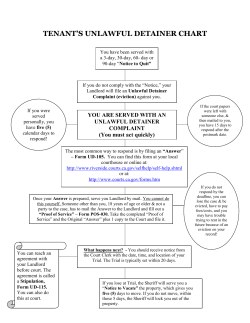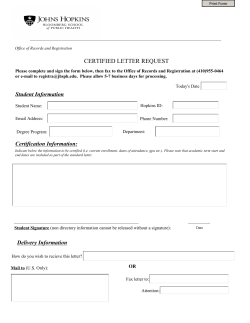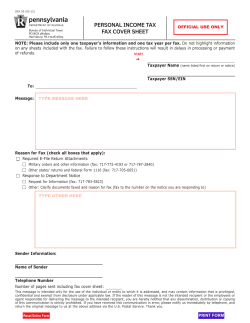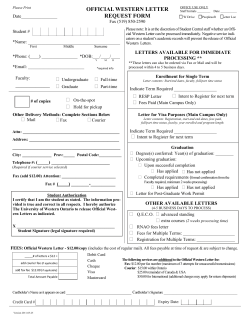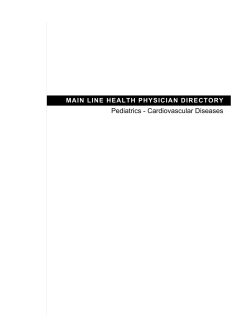
A TENANT’S GUIDE TO SUMMARY PROCESS STEPS IN AN EVICTION ACTION
A TENANT’S GUIDE TO SUMMARY PROCESS STEPS IN AN EVICTION ACTION State of Connecticut Judicial Branch Superior Court The Judicial Branch of the State of Connecticut complies with the Americans with Disabilities Act (ADA). If you need a reasonable accommodation, in accordance with the ADA, contact a Judicial Branch employee or an ADA contact person listed at www.jud.ct.gov/ada/. TABLE OF CONTENTS Appearance and Answer . . . . . . . . . . . . . . . . . . . 1 Trials . . . . . . . . . . . . . . . . . . . . . . . . . . . . . . . . . . . . 2 Judgments . . . . . . . . . . . . . . . . . . . . . . . . . . . . . . . 3 Legal Aid and Lawyer Referral . . . . . . . . . . . . . . 6 Legal Aid Offices . . . . . . . . . . . . . . . . . . . . . . . . . . 7 Lawyer Referral Service Offices . . . . . . . . . . . . . 8 Superior Court - Housing Session Locations . . 9 Geographical Area Court Locations . . . . . . . . . . 10 Handling Housing Matters Judicial District Court Locations . . . . . . . . . . . . . 11 Handling Housing Matters Forms Appearance, JD-CL-12 . . . . . . . . . . . . . . . . . . . . . 12 Summary Process (Eviction) . . . . . . . . . . . . . . . . 13 Answer to Complaint, JD-HM-5 INTRODUCTION This pamphlet is designed to inform you of the basic steps in an eviction (summary process) action. It is not intended as a substitute for the advice of an attorney. The clerk’s office is not responsible for any errors or omissions in this pamphlet. If you feel you need more information or assistance, you should talk to an attorney or read the appropriate sections of the Connecticut General Statutes and Connecticut Practice Book. APPEARANCE AND ANSWER After you are served with an eviction (summary process summons and complaint), the first step in representing yourself is to file a form known as an Appearance. This must be filed at the court clerk’s office no later than 2 days after the Return Date on your Court Summons. Your Appearance lists your name, address, telephone number and signature. By filing your Appearance, you have taken the first step to contest (challenge) the eviction case brought against you by your landlord. Your landlord is known as the Plaintiff, and you are known as the Defendant. After filling out your Appearance form (see JD-CL-12 on page 12), you should then file an Answer to your landlord’s complaint. The clerk’s office will give you an Answer form. You must read each numbered paragraph of the landlord’s complaint and check off your response on the Answer form (“Agree,” “Disagree” or “Do Not Know”). (See JD-HM-5 on page 13.) There are also several Special Defenses listed on the Answer form. You must check any that apply to you and fill in the blanks, as appropriate. Additional comments may be written at the bottom of the form. Be sure to sign the form. In addition to filing the original Answer with the court, you must also immediately mail a copy of it to your landlord or your landlord’s attorney, if there is one. If you do not mail a copy, you may automatically lose the case. If you have checked any Special Defenses, the landlord must file a Reply to them before a trial is scheduled. 1 A trial before a judge will be scheduled in your case approximately 1 week to 10 days after all pleadings have been filed. The clerk’s office will notify you of the trial date by mailing you a Notice of Court Hearing. In cases of nonpayment of rent only, if you file Special Defenses claiming that your dwelling unit has serious housing or health code violations, you may ask for an inspection of your dwelling unit by a Housing Mediator. Information obtained from this inspection will be used only for mediation purposes so the Housing Mediator can help the parties reach a fair settlement (see discussion of Housing Mediator under Trials). You should arrange this inspection by calling the court at least 5 working days before your trial. TRIALS It is very important that you come to court on the trial date listed on the Notice of Court Hearing or you may lose your case by default. You must be at the court on time. Be sure to bring any witnesses, papers or receipts that you may have. This is very important or you may lose your case for lack of proof. If a witness will not come to court voluntarily, you may apply for a subpoena at the clerk’s office. Please do so at least 2 days before the scheduled trial date. If a judge grants the application, a subpoena will be issued. The subpoena must be served on your witness at least 18 hours before your trial date and time. The state marshal will charge you a fee to serve the subpoena. 2 On the day of your trial, your case will be announced by the courtroom clerk. When your case is called, be sure to tell the clerk that you are there. After your case is called, you will meet with a Housing Mediator who will discuss the case with you and your landlord. The Housing Mediator will help you and your landlord work out a fair settlement. If you and your landlord agree on a settlement, the agreement will be reviewed by the judge. If it is approved by the judge, it will be entered on the record as a “Stipulated Judgment.” You will be given a copy of this, which you should be sure to keep. You are under no obligation to settle your case. If you do not work out an agreement, there will be a trial. The judge will hear the case and make a decision based on all of the evidence. The judge will either announce the decision in court or you will be notified by mail. If you need an interpreter, you must contact the clerk’s office at least 2 days before any hearing date. JUDGMENTS If the judge decides the case for you, after trial, you may stay in the premises. If you lose the case either because you did not come to court on the trial date (by default) or, after a trial, you will have 5 days to leave the premises. The date of judgment, Sundays and legal holidays are not counted in this 5 day period. 3 In cases of nonpayment of rent, you can apply to the court to stay in the premises for up to 3 more months if you cannot find another place to live. In order to receive more time, you must do both of the following within 5 days from the date of judgment. The date of judgment, Sundays and legal holidays are not counted in this 5 day period. A. Deposit with the court, in person, the full amount of the arrearage (back rent and/or use and occupancy) owed to your landlord. This can be paid only by certified check or money order payable to Clerk, Superior Court, or by cash. B. At the time you pay the full amount of the arrearage, you must also fill out and file a Stay of Execution Application, which is a form that you may get from the clerk’s office. A court hearing will then be scheduled on the Stay of Execution Application. You will be notified of the date and time of hearing either immediately or by mail. At the hearing, the exact amount of additional time you may stay in the premises, up to a maximum of 3 months, will be decided by the judge. In cases of termination of lease by lapse of time (“without cause eviction”) or when a previous right or privilege to occupy has terminated, you have the right to apply for more time to stay in the premises if you cannot find another place to live. You must personally come to the court to file a Stay of Execution Application. A court hearing will then be scheduled. You will be notified of the date and time of hearing either immediately or by mail. 4 At the hearing, the exact amount of additional time, up to a maximum of 6 months, will be decided by the judge. If you do not move voluntarily when your Stay of Execution period runs out, or if you have violated its conditions, the court may issue an Execution for Possession to your landlord. This applies both to Stays of Execution ordered by the judge and those worked out through an Agreement of the Parties. If you violate a condition of either type of Stay of Execution by not making a required payment, the landlord or landlord’s attorney must file an affidavit and send a copy to you before an Execution can be issued. If you disagree with the landlord’s affidavit, you must go to the clerk’s office immediately to file an objection. If you do nothing, an execution will issue on the 3rd business day after the filing of the affidavit. Your belongings may then be physically removed by the state marshal and delivered to a place where they will be stored. If your belongings are removed and stored, and you do not reclaim them and pay the storage expenses within 15 days, those belongings may be sold by the town. 5 LEGAL AID AND LAWYER REFERRAL If you feel you need additional assistance, legal advice or representation, you should contact an attorney. You may get an attorney by contacting a Lawyer Referral Service office, or, if you qualify, a Legal Aid Office. (See page 7 for a listing of these services.) Note: Only the clerk’s offices of the Housing Sessions are authorized to help parties who are representing themselves. (Section 51-52(d) of the Connecticut General Statutes.) 6 LEGAL AID OFFICES AGENCY TELEPHONE For initial screening of requests for legal assistance from legal aid programs in Connecticut: STATEWIDE LEGAL SERVICES, INC. (860) 344-0380 (Hartford, Central Connecticut, Middletown Areas) 1-800-453-3320 (All Other Regions) Greater Hartford Legal Assistance Hartford Office: (860) 541-5000 New Haven Legal Assistance, Association, Inc. New Haven Office: (203) 946-4811 Connecticut Legal Services, Inc. Regional Offices: (203) 336-3851 Bridgeport New Britain (860) 225-8678 New London (860) 447-0323 Stamford (203) 348-9216 (203) 756-8074 Waterbury (860) 456-1761 Willimantic Satellite Locations: 1-800-541-8909 Danbury (860) 225-8678 Meriden/Middletown (203) 348-9216 Norwalk (860) 447-0323 Norwich Rockville 1-800-413-7796 (860) 541-5000 1-888-380-3646 AIDS Legal Network 7 LAWYER REFERRAL SERVICE OFFICES LOCATION TELEPHONE Fairfield County (203) 335-4116 Hartford, Litchfield, Middlesex, Tolland and Windham Counties (860) 525-6052 New Haven County (203) 562-5750 New London County (860) 889-9384 M/W/F 8 SUPERIOR COURT HOUSING SESSION LOCATIONS TELEPHONE LOCATION Fairfield Judicial District Superior Court – Housing Session 1061 Main Street Bridgeport, CT 06604 Hartford Judicial District Superior Court – Housing Session 80 Washington Street Hartford, CT 06106 Tel: (203) 579-6936 Fax: (203) 579-7291 Tel: (860) 756-7920 Fax: (860) 756-7925 New Britain Judicial District Tel: (860) 515-5130 Superior Court – Housing Session 20 Franklin Square, Room 211 Fax: (860) 515-5138 New Britain, CT 06051 New Haven Judicial District Superior Court – Tel: (203) 789-7937 Housing Session Fax: (203) 773-6795 121 Elm Street New Haven, CT 06510 Stamford/Norwalk Judicial District Superior Court – Housing Session 17 Belden Avenue Norwalk, CT 06850 Tel: (203) 846-4332 Fax: (203) 750-0881 Waterbury Judicial District Tel: (203) 591-3310 Superior Court – Housing Session Fax: (203) 596-4080 300 Grand Street Waterbury, CT 06702 9 GEOGRAPHICAL AREA COURT LOCATIONS HANDLING HOUSING MATTERS LOCATION (G.A.) G.A. 3 146 White Street Danbury, CT 06810 TELEPHONE Tel: (203) 207-8600 Fax: (203) 207-8666 G.A. 5 106 Elizabeth Street Derby, CT 06418 Tel: (203) 735-7438 Fax: (203) 735-2047 G.A. 10 112 Broad Street New London, CT 06320 Tel: (860) 443-8343 Fax: (860) 437-1168 Tel: (860) 779-8480 G.A. 11 120 School Street Danielson, CT 06239 Fax: (860) 779-8488 G.A. 18 80 Doyle Road P.O. Box 667 Bantam, CT 06750 Tel: (860) 567-3942 Fax: (860) 567-3934 G.A. 21 1 Courthouse Square Norwich, CT 06360 Tel: (860) 889-7338 Fax: (860) 885-0509 10 JUDICIAL DISTRICT COURT LOCATIONS HANDLING HOUSING MATTERS LOCATION (J.D.) TELEPHONE Judicial District at Meriden 54 West Main Street Meriden, CT 06451 Tel: (203) 238-6666 Judicial District at Middlesex 1 Court Street Middletown, CT 06457-3374 Tel: (860) 343-6400 Judicial District at Tolland 69 Brooklyn Street Rockville, CT 06066 Tel: (860) 896-4920 11 Fax: (203) 238-6322 Fax: (860) 343-6423 Fax: (860) 875-0777 12 form continued 13 14 NOTES JDP-HM-15 Rev. 12/12
© Copyright 2025
